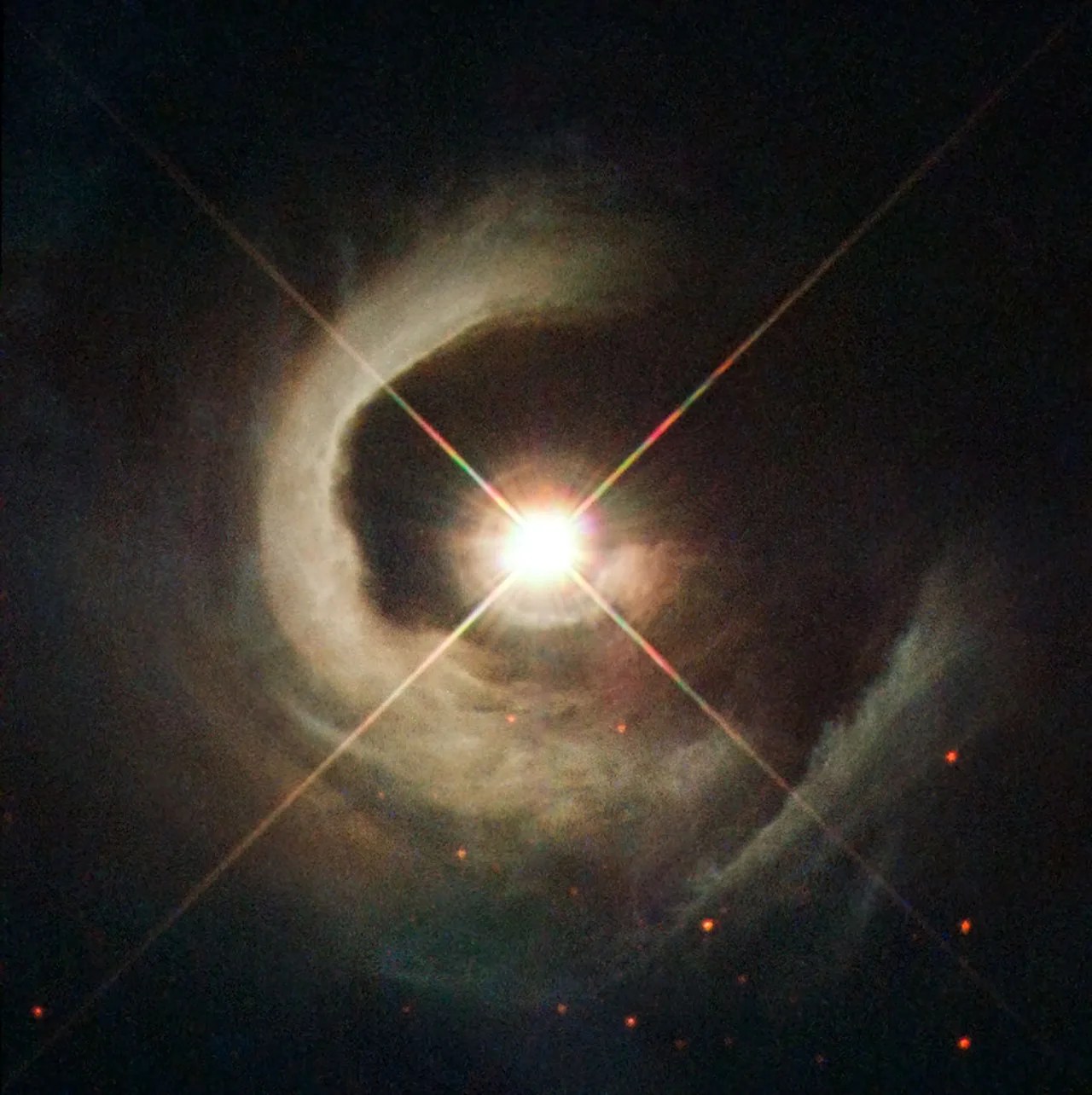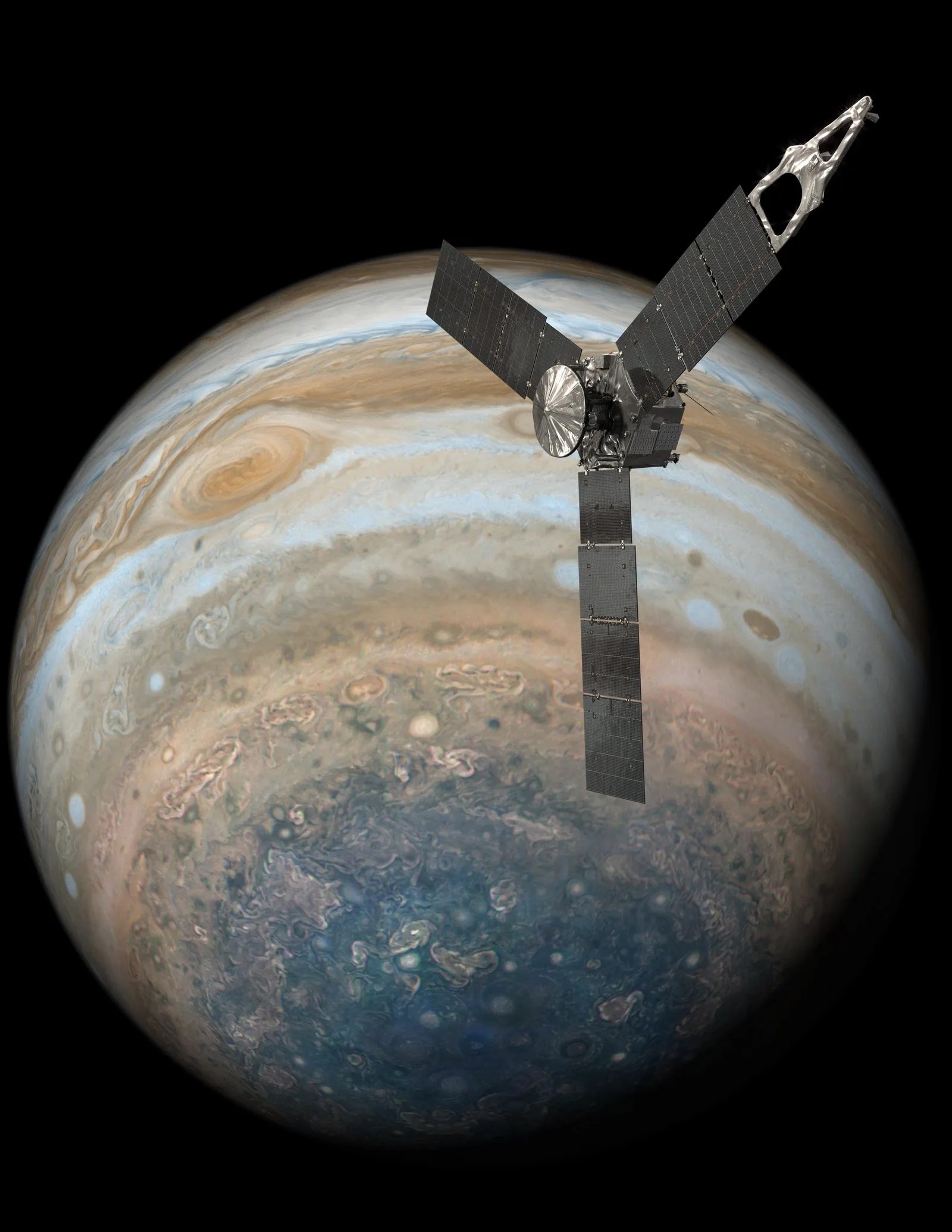1 min read

With its helical appearance resembling a snail’s shell, this reflection nebula seems to spiral out from a luminous central star in this NASA/ESA Hubble Space Telescope image.
The star in the center, known as V1331 Cyg and located in the dark cloud LDN 981 — or, more commonly, Lynds 981 — had previously been defined as a T Tauri star. A T Tauri is a young star — or Young Stellar Object — that is starting to contract to become a main sequence star similar to the sun.
What makes V1331Cyg special is the fact that we look almost exactly at one of its poles. Usually, the view of a young star is obscured by the dust from the circumstellar disc and the envelope that surround it. However, with V1331Cyg we are actually looking in the exact direction of a jet driven by the star that is clearing the dust and giving us this magnificent view.
This view provides an almost undisturbed view of the star and its immediate surroundings allowing astronomers to study it in greater detail and look for features that might suggest the formation of a very low-mass object in the outer circumstellar disk.
Text Credit: European Space Agency







